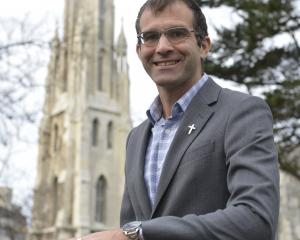
Every day we are made aware of grave suffering. The trauma and suffering caused by natural disasters, such as the recent earthquake in Turkey and Syria, or by the ongoing human conflicts in the Ukraine and Ethiopia, are very real indeed, however much we might prefer to think of them as far removed from us (they are not). There are the ongoing and worsening effects of climate change, which will affect us more and more in the coming years. In our homes and communities, people carry with them everyday traumas and horrors that burden and poison their lives.
Although I feel all of this very keenly, it is one of the tasks of a lecturer in theology to try to find wisdom in the ancient scriptures and traditions of the Christian faith that might help us to live with trust, hope, and above all, love, when it is far more tempting to give in to despair.
The Jewish and Christian scriptures come from a world that is very different from ours. Yet there is wisdom to be found there, if we are willing to suspend our disbelief for a moment and look. Sometimes it is a kind of wisdom that deliberately avoids easy answers to the questions and uncertainties that rise up to trouble us.
In the book of Job, we meet an individual who has lived a life of privilege and piety, in fear of God, and in fear of what might happen if he were less religious. It is not easy to sympathise with him. He is unusually rich. He is oblivious of the fact that his way of life comes at a significant cost to others. He also seems unaware not only that there are other people who are suffering greatly (this begins to dawn on him in ch. 21), but also that his own suffering comes at a terrible cost to his family.
If it is not easy to sympathise with Job, then it is also not easy to find comfort in the God he worships. Job loses his children, his property and his health. His suffering, and the suffering of people among whom he lives, including his dependants, are all authorised by this God (albeit prompted by a heavenly Adversary, "the satan"). It is a test of some kind, to see whether Job’s faith will continue when every shred of security and trust has been taken away.
This is a book about suffering and trauma, and how one might find a way of living through it. Job deals with suffering by giving voice to his mental, physical, and spiritual distress, and then by summoning God to a trial to answer for how He has treated Job. God’s peculiar "answer" is to show Job a world in which he is of very little significance, ordered not by a justice that we can discern, but by a divine plan that delights in wild creatures whose lives may be brutal and short.
In the end, this God "blesses" Job, and gives him twice as much as he had earlier lost. This is, though, a strange sort of blessing. Can Job’s new life really comfort him for all that he has lost? Is faith in God, in others, or in the world, possible any longer? How could one trust the "blessing" of a God who had acted as Job’s God has done?
We are given no clear answers. All we are told is that Job somehow found a way of living and carrying on, running his farm, laying a foundation for the next generation, and finding joy in his children and grandchildren. We are never told that his body has been healed, nor are we told whether he continued to be haunted by the memories of the past, until he eventually died, "old and full of days".
Perhaps the ending of this story is just too good to be true, and offers nothing whatsoever to anyone whose life has been truly wrecked by suffering. Yet maybe it conceals a deeper sense that one can find a way to live with hope, even when everything has gone dark and God has turned away.
Maybe it leaves open the possibility of loving God and loving our neighbour freely, without any ulterior motive (Job 1:9), and without binding God to act as we think we have a right to expect.
■The Rev Dr James Harding is senior lecturer in the theology programme at the University of Otago.












